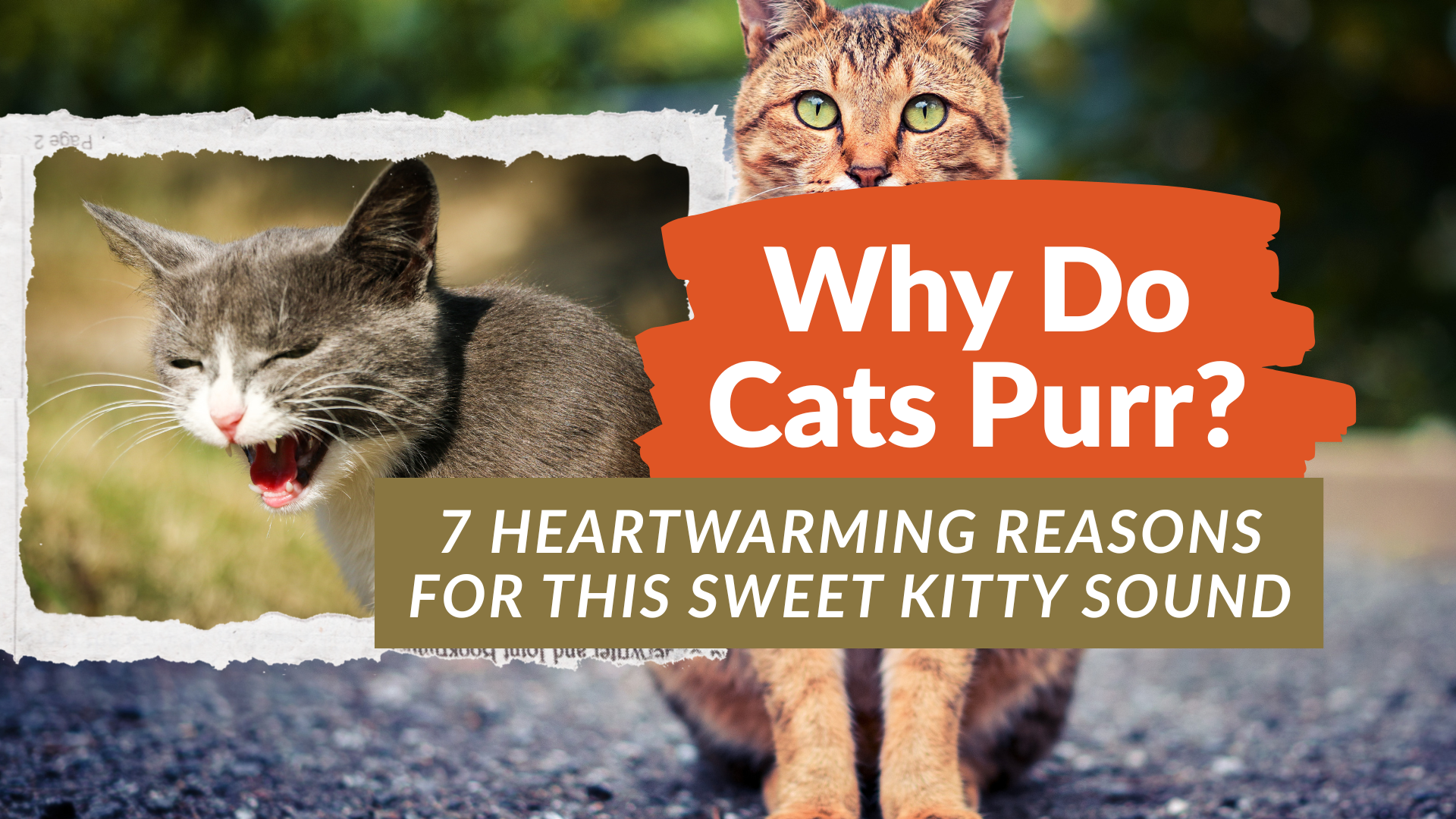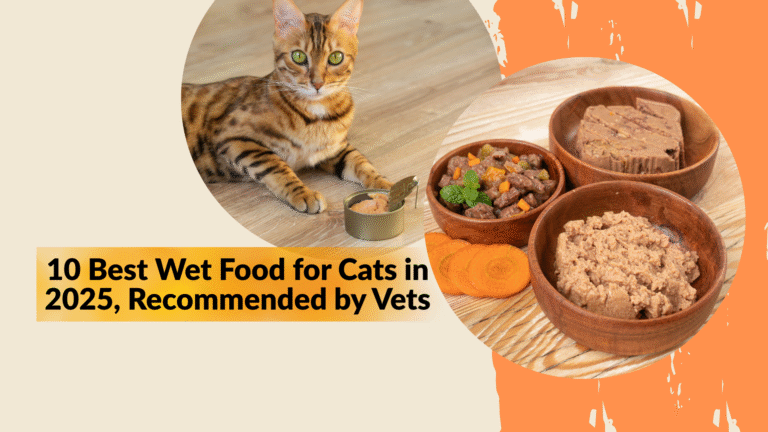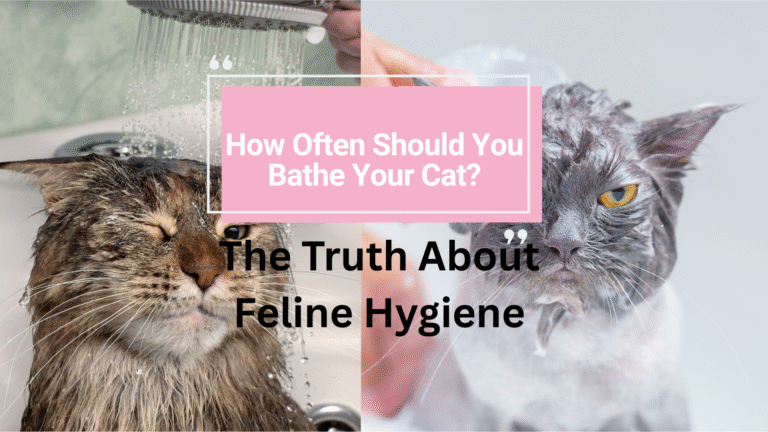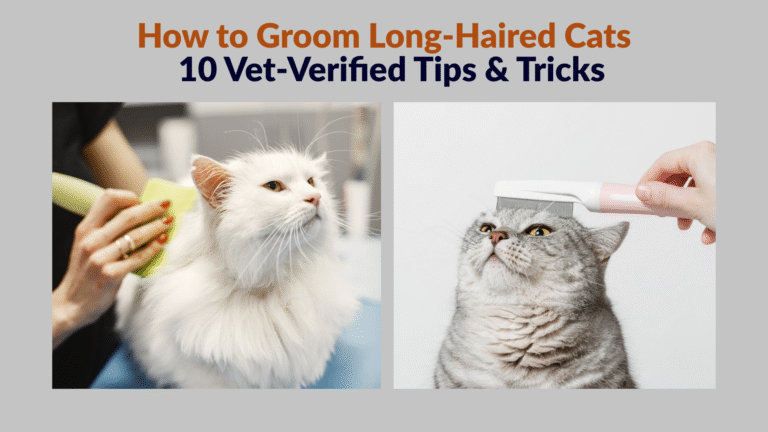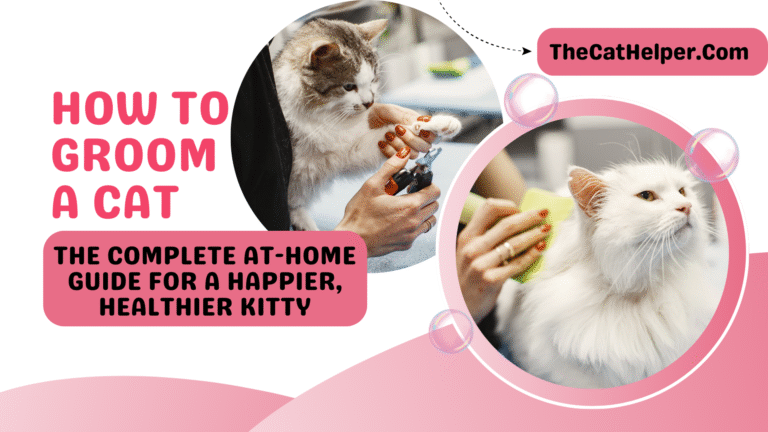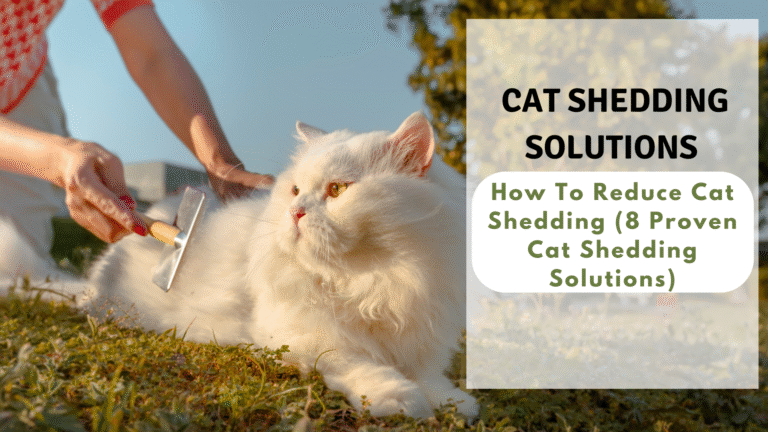Why Do Cats Purr? 7 Heartwarming Reasons for This Sweet Kitty Sound
Ever snuggled up with your cat, sensing the soft vibration in their chest as they purr in your lap? It’s one of the most calming, happiest sounds a pet enthusiast can ever hear. But have you ever taken the time to wonder Why do cats purr?
Contrary to popular belief, purring isn’t just a feline version of a smile. It is much more subtle, with layers of science, instinct, emotion, and communication behind it. From alerting others to happiness to healing themselves, cats employ this cryptic vibration for a variety of different reasons.
In this guide, we’ll dig into 7 well-researched and heartwarming reasons cats purr, explore what it means in different situations, and answer the burning question: What are the reasons cats purr besides happiness?
1. Cats Purr When They’re Content (But That’s Just the Start)
Let’s start with the obvious. When a cat is curled on your chest, eyes half-closed, softly shaking with purrs yep, they’re happy. This kind of purr is slow, steady, and rhythmic. It’s typically an indication your cat feels secure, warm, and relaxed.
But it’s a fallacy to think that this is the sole reason. Cats also purr in circumstances where they’re not necessarily relaxed such as at the vet or when giving birth. So what’s the deal there?
2. Purring as a Way to Communicate with Humans
Cats are notoriously subtle communicators. Unlike dogs, they don’t wag tails or bark to command your attention. But cats do learn to purr in ways that affect you.
There’s even something known as the “solicitation purr.” It’s a high, slightly panicky variation that mixes the usual purr with a cry. They use it to request food or attention basically their “please notice me” purr. And get this, research indicates that this sound elicits a caregiving response in humans. They have us over a barrel.
3. Kittens Purr to Bond With Their Mothers
Newborn kittens purr just a few days after birth long before they even open their eyes. This early purring serves to connect with their mothers and inform them that they’re alive, eating, and all is well.
Mama cats, for their part, purr while nursing. It’s almost like a built-in lullaby, soothing her kittens and affirming that everything is okay. Isn’t that adorable?
4. Purring as a Self-Soothing Mechanism During Stress
Here’s where things get interesting. Cats sometimes purr when they’re nervous, sick, or in pain. That might seem contradictory why purr when you’re scared or hurting?
Purring can be seen as a cat’s way of self-soothing much like how people might hum or gently rock to comfort themselves. A cat at the vet might purr not out of happiness, but to calm themselves down and cope with discomfort.
5. Cats Purr to Promote Healing (Yes, Really!)
There is actually science behind the healing ability of purring.
The frequency of a cat’s purr, between 25 to 150 Hz, falls within the range that is known to stimulate tissue growth and bone repair in mammals. That might be why cats heal from injuries quicker than other animals and why they tend to purr when they’re hurt or ill.
Some veterinarians even call it the cat’s own “healing mechanism.” So when your kitten is purring and curled up after surgery, maybe they are administering a little natural medicine to themselves.
6. Purring to Express Anxiety or Pain (The Misunderstood Signal)
That cat purring under the bed or recovering from an operation may not be fine.
Vets have reported that certain cats purr when they are in labor, hurt, or dying. Under these circumstances, purring might have two functions: healing themselves and informing others that they are distressed. It is similar to a child reassuring others that they are fine while attempting to be courageous.
This is why paying attention to a cat’s body language is crucial. Is your cat purring but also trembling, hiding, or refusing food? That’s a red flag.
7. They Just Might Be Purring for You
Cats are experts at subdued affection. Some animal behaviorists think that cats purr as a means of paying back the kindness. After all, if you pet your cat and they start purring back, they may just be saying: “I like this. I like you.”
One rescue owner went so far as to explain how her feral cat slowly began purring only when she came into the room not when petted, not when being fed, but simply when she was present. It was the cat’s way of expressing gratitude, trust, and affection.
What Are the Reasons Cats Purr Besides Happiness?
Let’s recap:
| Reason | Explanation |
|---|---|
| Bonding | Kittens purr with mothers to build trust and connection. |
| Healing | Purring vibrations may support bone and tissue recovery. |
| Stress Relief | Cats purr when anxious to self-soothe. |
| Pain Response | Some cats purr during illness or labor. |
| Communication | Cats use “solicitation purrs” to influence humans. |
| Comfort | Purring shows a state of calm and safety. |
| Affection | Cats may purr to show emotional connection. |
FAQs
What are the reasons cats purr besides happiness?
Cats purr when they’re stressed, hurting, hurt, giving birth, or recovering. It’s an adaptive behavior that’s more than just joy.
Do cats purr when they’re in pain?
Yes. Injured or sick cats sometimes purr possibly as a healing or soothing mechanism for themselves.
What is a solicitation purr?
It’s a unique combination of a purr and a meow that cats employ to request food or attention. It’s pitchy and intended to pull at your heartstrings.
Can a cat purr and still be unhappy?
Most definitely. Discomfort can be masked by purring, or it can be used as a way of dealing with anxiety.
Why do kittens purr so early in life?
Kittens purr to communicate with their mother and strengthen their bond. It informs the mother that they’re nursing and healthy.
Can purring heal humans too?
Although there’s no definitive evidence, some are convinced that the soothing frequency of a cat’s purr could lower human stress and blood pressure levels. At least, it puts a smile on our faces.
Final Thoughts: The Secret Life Behind the Purr
So, why do cats purr? As you now understand, it’s not one thing it’s a multi-faceted, lovely behavior full of emotion, biology, and intrigue. Purring is how cats communicate with themselves, their mothers, and with us.
Whether it’s “I’m happy,” “I need help,” or “I love you,” the purr is one of the most charming feline characteristics and the better we know it, the closer our connection with our whisker-ed friends.

